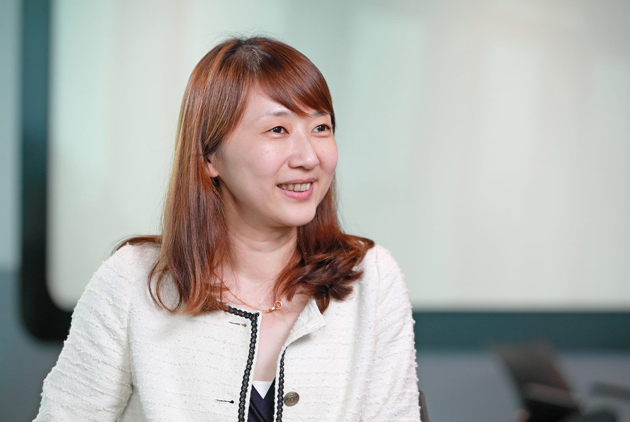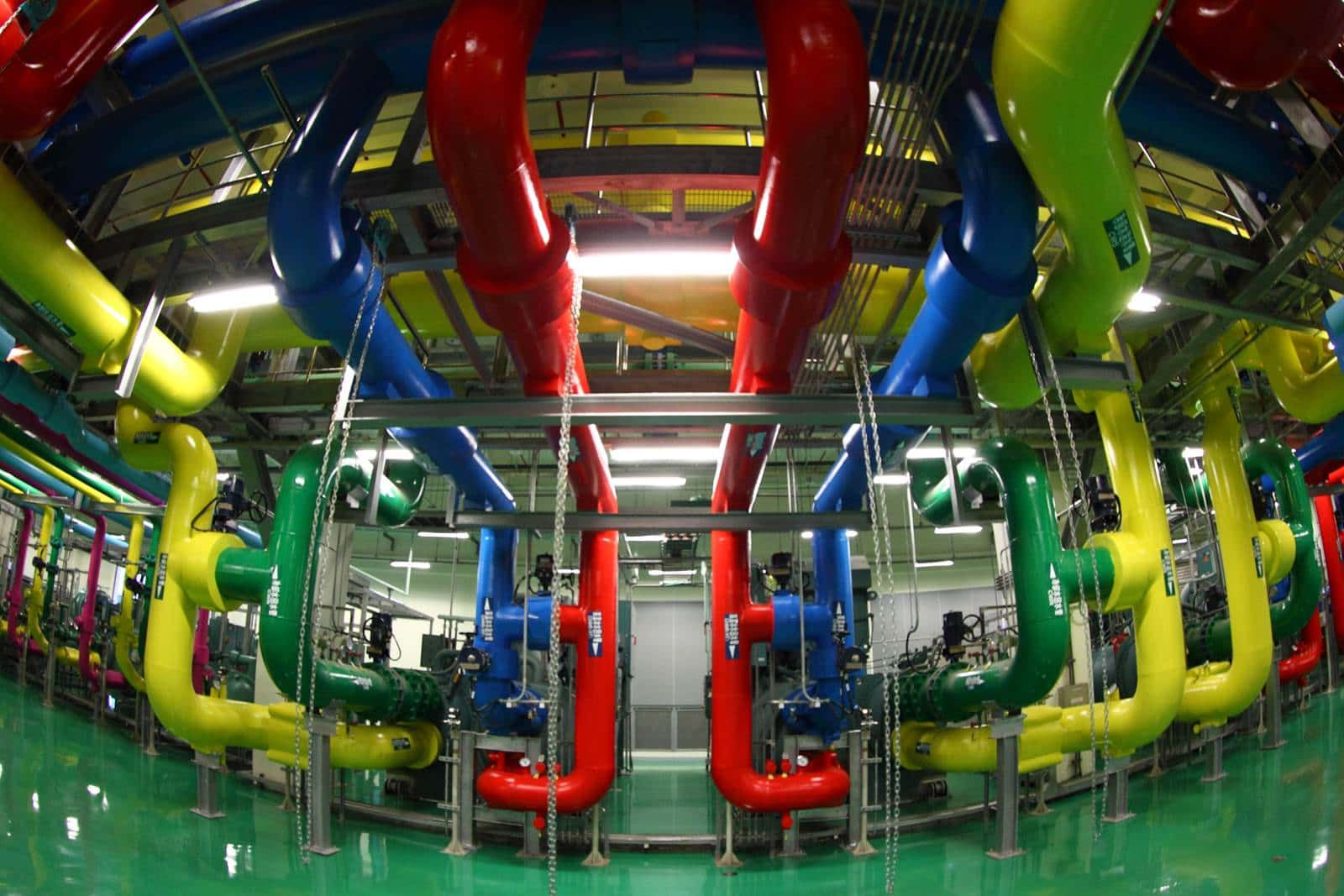Google Ups Investment in Taiwan, Highlights Risks

Source:Chien-Ying Chiu
Among the top performing American technology companies known by the acronym FAANG (Facebook, Apple, Amazon, Netflix, Google), none has invested more in Taiwan than Google. Where does the Internet giant see Taiwan’s strengths and weaknesses?
Views
Google Ups Investment in Taiwan, Highlights Risks
By Yi-shan Chenweb only
“Whenever we come to the part about Taiwan at our daily COVID-19 briefings, the moderator always says ‘This is our favorite page’,” notes Google Taiwan General Manager Tina Lin (林雅芳). The six offices that Google maintains across Taiwan are the only places in the world where Google staff keeps working on site.
Google headquarters had announced that the more than 20,000 employees in other locations around the world will have to work from home until next summer.
Lin confirmed at a news conference on year three of the company’s Smart Taiwan Initiative in late September that, after the completion of a second data center in the Tainan Science Park in southern Taiwan, the land for another data center has been purchased in Yunlin County.
Previously, the Federal Communications Commission (FCC) in the United States approved an application by Google and Facebook to activate the U.S.-Philippines and U.S.-Taiwan sections of the Pacific Light Cable Network (PLCN) while putting on ice the section connecting the U.S. with Hong Kong based on security concerns. In Taiwan, the landing point for the brand-new broadband cable will be Toucheng in Ilan County on Taiwan’s northern Pacific coast. “When the cable makes landfall, Google will send a team over,” explains Lin.
Taiwan’s Strengths: Suppliers Can Meet Within an Hour
Of the five top U.S.-based technology firms, Google has made the highest investment in Taiwan to date. In 2018, Google closed a deal with Taiwanese smartphone maker HTC Corp. for the transfer of more than 2,000 engineers who had been involved in the development of the Google Pixel smartphone. With the acquisition,Taiwan became Google’s largest smartphone R&D base. The Chromebook, Google’s hit product for the education market, and its cloud computing equipment are all developed in Taiwan.

(Source: Chien-Tong Wang)
“All supply chains are on this small island; you can bring them together within an hour, and discuss which products are feasible and which are not. This is why the industrial eco-chains for Android, Chromebook and cloud computing can be deepened. This is Taiwan’s strength,” says Lin.
Autonomous driving, smartwatch sections are hiring
Notably, Waymo, a subsidiary set up by Google’s autonomous driving department, had started hiring in Taiwan last year. This year, the startup continues to recruit hardware engineers with supply chain expertise and testing engineers. Fitness tracker brand Fitbit, which has been acquired by Google in a deal that has yet to clear regulatory hurdles, is also seeking to hire in Taiwan, also because the company regards the local supply chains as an asset.
For a software company like Google, talent is the most valuable resource. That Google continues to hire high-tech engineers in Taiwan shows that the multinational is keen on intensifying its collaboration with Taiwan.
“We stand out for our Agile, Can do and Deliver attitude,” notes Lin. Taiwan hosts one of Google’s largest engineering teams in Asia, although in global terms it is still very small. Google headquarters is willing to pour more resources into Taiwan because, so far, the local operations have been able to deliver on their promises. The only other Asian engineering team of comparable size is based in India, a much bigger country with a huge population of 1.5 billion people.
“Taiwan always only sees some of its own advantages, whereas Google sees a great many advantages,” Lin points out.
Taiwan enjoys political stability, and by international standards, its laws and regulations support technological development, the government attaches importance to foreign technology and investment, and is ready to talk with large corporations. Since the government does not regard foreign enterprises as a threat, it is relatively friendly toward foreign companies.
Another advantage of Taiwan is that it easily reaches the mass markets of Japan, South Korea, and Southeast Asia. The Taiwanese are relatively inclusive and tolerant, which is why they do well in different markets at the same time. These factors all contribute to the outward-oriented development of the Taiwan economy.
Taiwan’s weakness: Aside from TSMC, no other company contributes to the world economy
Speaking her mind, Lin also remarks that Taiwan is currently facing some challenges given that the domestic population has begun to decline this year.
According to an internal analysis at Google, only two countries with a smaller population than Taiwan’s 23 million people are ranked higher in terms of their share of the world economy: the Netherlands and Switzerland.
The Netherlands owes this to several multinationals companies that have gone global, whereas Switzerland is an international finance industry hub. However, if we take away the output of TSMC from Taiwan’s economy, it becomes obvious that the contribution of other Taiwanese companies to the world economy has not markedly increased during the past 10 to 15 years.
According to Lin, “Taiwan needs to find its own strengths; it needs to find growth momentum; it must reach the global market with its products, services and technologies. This is an important direction,” Lin said.
Another challenge is attracting overseas talents to Taiwan.
Lin points out that Google will base more projects in Taiwan, providing more opportunities for attracting talent from other countries to relocate. Google is keen to give overseas recruitment a try to see whether Taiwan could be an option other than Japan and Singapore. “We hope to take advantage of the pandemic since many colleagues have now come to know Taiwan better,” she says.
Attracting international talent is a complex undertaking.
On the one hand, Taiwan offers salaries that are rather low by international standards. And then expats need to consider many other factors such as their spouse’s right to work or ability to find a suitable job, international schooling for their children, adequate housing, lifestyle, and food diversity. “Good talent all want to find a place providing comfort, high salaries and high value,” explains Lin. London and Zurich, the two locations in Europe where Google maintains engineering hubs, count among Europe’s most expensive places.
Have you read?
♦ Apple Supply Chain Disrupted by Novel Coronavirus, Expediting the Flight of Foreign Investment from China
♦ Taiwan Digital Minister Audrey Tang: Citizen Hackers Save the World
♦ Taiwan Needs More than TSMC
Translated by Susanne Ganz
Edited by TC Lin
Uploaded by Penny Chiang






